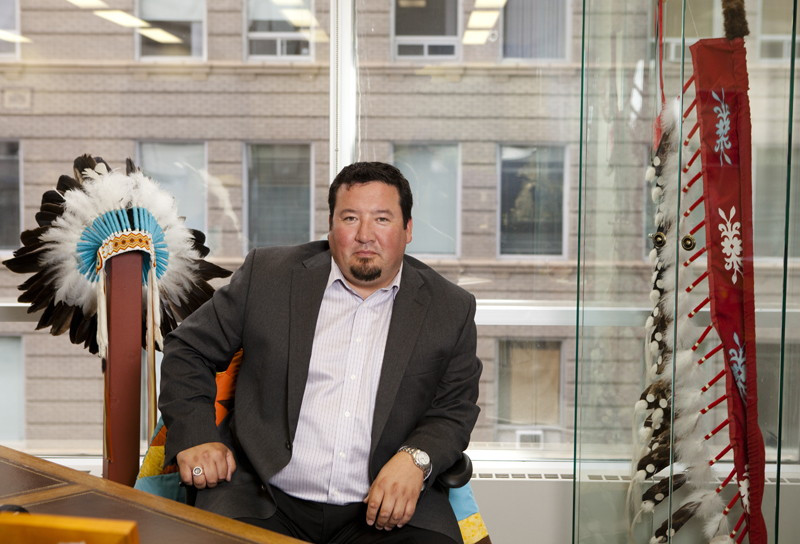Derek Nepinak’s renewal strategy
Newly elected Grand Chief works for equal rights for First Nations communities
Derek Nepinak, Manitoba’s newly elected Grand Chief, is calling his platform the “Renewal Strategy,” and is focusing on strengthening education and health in Manitoba’s First Nations’ communities.
Nepinak, who was voted as head of the Assembly of Manitoba Chiefs in late July, represents 59 First Nations communities across the province.
“My mandate is a product of the resolutions,” Nepinak said in a recent interview. “As the chiefs come together within our organization, we come together to make decisions and take political action … through resolution.”
The chiefs meet quarterly to discuss or vote on how to tackle the issues brought up in First Nations communities.
“If they pass, it creates a mandate for me to take out the political action through my office,” says Nepinak. “It may seem simplistic, but it’s a very complex, convoluted consideration that goes right to the philosophy of who we are here at the AMC.”
The AMC’s purpose, however, is not to serve as a lobby group, Nepinak said. The assembly serves as advocates.
“There is a different gloss to advocacy. Our advocacy is built on the foundation of inherent rights and treaty rights,” said Nepinak. “We don’t lobby, we have a much more fundamental relationship with Canada.”
“ There is a different gloss to advocacy. We don’t lobby, we have a much more fundamental relationship with Canada.
Derek Nepinak, Grand Chief, Assembly of Manitoba Chief
The approach AMC takes towards some of the pertinent issues such as education and health is treaty-based.
“(We ask) ‘How would the treaty apply in this contemporary context?’ (and) then we work from that platform,” Nepinak said.
The quality of both education and health in First Nations communities should not be compared with other Canadians, for they are living in what Nepinak calls a “funding parody.”
In cities, teachers receive fair salaries and full benefits, and there is opportunity for more recreational activities and healthier eating options. But that funding is not being offered for First Nations communities, he said.
“This is not just in Manitoba, but across Canada.”
Instead, the AMC receives “contribution funding agreements” from the federal government. They are proposal driven initiatives, and there is no autonomy in how the money is spent. It’s hard to generate revenue through this process to tackle issues plaguing the province’s aboriginal community.
“We need consistency in the way in which we receive funding,” he said.
Nepinak brings a wealth of legal knowledge to his new position at the AMC. He holds a law degree from Osgoode Hall in Toronto, and has put his Master of Arts studies at the University of Winnipeg on hold while carrying out actions through the AMC.
The ability to bring legal knowledge to treaties and drafting laws is a skill that Nepinak hopes to practice often in his role.
“Whether that be an Indian education act or a health act that would create statutory funding obligations with Canada,” he said. “That would be the true realization of that government to government relationship our communities have talked about for generations.”
Published in Volume 66, Number 2 of The Uniter (September 8, 2011)







